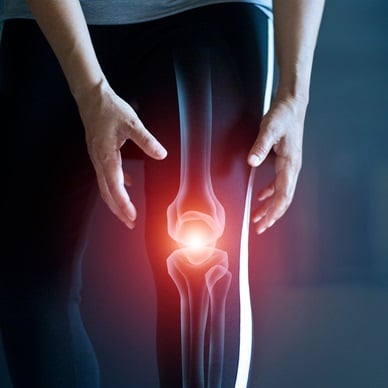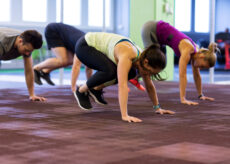The Best Cardio Exercises for Your Heart Health

Move it or lose it should be part of your healthy lifestyle motto. Keeping cardio exercises as an important part of that lifestyle is paramount. Cardio not only strengthens the heart, but it provides a host of other benefits as well.
What is Cardio, Exactly?
The term “cardio” is actually a shortened version of the word “cardiovascular.” It refers to exercise that relies on the intake of oxygen to perform. It’s typically rhythmic and goes on for a period of time, boosting your heart rate over that span of time.
The types of activities that would be considered cardiovascular are movements that make you breathe in more oxygen than normal, like running, walking, dancing, swimming, etc. Also, think of small repetitive movements performed for a longer period.
These exercises are in contrast to anaerobic exercises that force your body to break down glucose for energy and don’t require the use of extra oxygen. Anaerobic exercises are short burst movements and would include things like weightlifting, rock climbing, sprints, and plyometrics.
How Do Cardio Exercises Benefit Your Heart Health?
Why are cardiovascular exercises important for your heart health? First and foremost, it improves your circulation. When you get the blood moving freely through your body, your tissues and bodily systems can benefit from the oxygen and nutrients shuttled in via the bloodstream.
Better circulation can also contribute to lower blood pressure. Lower blood pressure reduces the stress on your heart, veins, and arteries. It also helps prevent the formation of fatty deposits on the walls of your arteries that can contribute to heart problems down the road.
Regular cardiovascular exercises are also protective measures against stroke, heart arrhythmia and clotting conditions, diabetes, and even high cholesterol.
Other Benefits of Cardio
While keeping your heart healthy with cardio exercises is obviously important, that’s not the only reason to get your cardiovascular movements in. Cardio has a lot of other great “side effects” that will push it to the top of your list of priorities.
Not only does it strengthen your heart, but it will tone up your muscles as well. And using your muscles on the regular will force them to adapt, making them stronger (and that includes your heart!). You’ll also notice over time that you can go for longer periods of time without exerting more effort as you become more cardiovascularly fit.
And don’t be surprised if your mood starts to lift as well. Cardio exercises boost natural antidepressants called endorphins and can help ward off depression and anxiety.
Cardio burns calories, too. So, if you notice those jeans are getting a little looser, you can thank the extra calorie burn created by that regular cardiovascular exercise.
Last, but certainly not least, are the benefits to all your other health markers: lower cholesterol, reduced blood pressure, better blood sugar management, and decreased risk of disease are just a few of the chart toppers.
Where to Place Your Focus
- Duration—how often you do your cardio sessions will determine how much you benefit. According to the Physical Activity Guidelines for Americans, adults should engage in between 150 and 300 minutes of moderate aerobic-type exercise per week. Or, if you opt for a more intense workout, go for 75 to 150 minutes spread out throughout your week.
- Intensity—your exercise intensity is important too. You can walk at a leisurely pace, but your health benefits won’t be as great as they would be if you push yourself harder.
- Frequency—break up your cardio sessions fairly evenly throughout the week. For example, you might take a 30-minute walk 5 days a week with 2 days of rest. Avoid being a “weekend warrior” or trying to fit all your cardio in just one or two days a week. Instead, spread it out so your heart can benefit from the regular exercise and health benefits of frequent cardio. The more often you do it, the more you will have a chance to benefit.
Best Cardio Exercises for Heart Health
When it comes to improving your heart health, while you do want a well-rounded program that includes weight lifting and flexibility training, you’ll want to focus mainly on your cardiovascular exercise selection.
Yes, there are the old standbys when it comes to cardio exercises like:
- Walking
- Jogging
- Running
- Swimming
- Hiking
RELATED: Collagen Doesn’t Work (Unless…)
But did you ever consider some of these other fun cardio options?
Hula Hooping—Tone up your core as you burn off the calories and improve your mood with all the laughter that is sure to come with this child-like activity.
Kickboxing—taking a kickboxing class can help you work out the stress of your day and help boost your heart health. Plus, it’s a great way to tone up that upper body while you’re at it.
Run the stairs—find a local school or arena and run up those stadium stairs. That will leave you breathless for sure. Walk down, enjoy the view, and repeat.
Jumping jacks, running in place, leg lifts, mountain climbers—any of these movements can be easily done in the privacy of your own home and require no equipment. Fire up your metabolism with a few minutes of your exercise of choice, or mix it up for even more variety.
Dancing—there’s no law against boosting heart health while having fun at the same time. And don’t forget the powerful calorie burn that comes with the nonstop movement of dancing to a good tune.
Tabata—try this short workout that combines resistance with cardio. It’s intense and you’ll be done in a few minutes, but that afterburn effect will carry health benefits over the course of your day.
Sports—try some fun team sports like a pick-up game of basketball, join a softball team, or try your hand at racquet sports or even soccer. All the running as you chase errant balls will naturally boost your cardiovascular fitness.
And while cardiovascular exercise is ideal for heart health, don’t forget that other forms of exercise keep your heart strong too. Make sure to include resistance training, flexibility exercises, and balance work for a well-rounded program.




 US Doctor: "Eating This Every Day Can Snap You Into Ketosis"
US Doctor: "Eating This Every Day Can Snap You Into Ketosis" 3 Key Nutrients to Help Lubricate Your "Tin Man" Joints
3 Key Nutrients to Help Lubricate Your "Tin Man" Joints AVOID Plant-Based Protein Powders (unless...)
AVOID Plant-Based Protein Powders (unless...)

